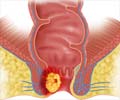
"For patients with thyroid cancer, 'one size fits all' no longer applies," said Ravinder Grewal, M.D., corresponding author of "The Effect of Posttherapy 131I- SPECT/CT on Risk Classification and Management of Patients with Differentiated Thyroid Cancer" and an assistant attending physician in nuclear medicine at Memorial Sloan-Kettering Cancer Center in New York. "Through molecular imaging, the paradigm is changing toward more tailored and customized management of treatment. As a result, we can see how far a disease has spread and spare the patient from additional examination, time and radiation exposure."
For the study, researchers performed planar imaging and single-photon emission computed tomography (SPECT)/CT on 148 patients with thyroid cancer. The results showed that SPECT/CT provided information that reduced the need for additional cross-sectional imaging in 29 patients and redefined the initial risk of recurrence estimates in seven of 109 patients, thereby altering patient management recommendations in terms of frequency and intensity of follow-up studies.
In another study, researchers in Germany used positron emission tomography (PET)/CT with the radiotracer 68Ga-DOTATATE to evaluate the effectiveness of molecular imaging in monitoring patients with neuroendocrine tumors after undergoing peptide receptor radionuclide treatment. This study evaluated 33 patients at baseline and three months after treatment began. The findings suggest that PET/CT may contribute to the early prediction of treatment outcome in patients with neuroendocrine tumors.
"This molecular imaging technique can help doctors to classify patients according to their prognosis and to choose a personalized follow-up strategy," said Alexander Haug, M.D., corresponding author of the study and a researcher at Ludwig-Maximilians-University, Munich, Germany. "With the use of specific biomarkers, nuclear medicine provides the unique opportunity to perform diagnosis and therapy with the same tracer compound and—with the use of different biomarkers—to provide personalized tissue characterization. Nuclear medicine will be essential for the work-up of cancer patients in the near future."
The third study also used molecular imaging to monitor treatment success and aid in planning. Researchers evaluated 104 patients with newly diagnosed Hodgkin lymphoma using fluorodeoxyglucose (FDG) PET after undergoing two cycles of chemotherapy treatment. Of these patients, 93 achieved complete remission after first-line therapy. During a median follow-up of 36 months, relapse or disease progression was seen in 22 patients. Researchers found that PET is an accurate and independent predictor of event-free survival in Hodgkin lymphoma patients.
Advertisement
The fourth study investigated the role of 18F-FDG PET/CT for the early identification of response to therapy in patients with non-small cell lung cancer (NSCLC). Researchers studied 23 NSCLC patients who were treated with a molecular-targeted agent called epidermal growth factor receptor tyrosine kinase inhibitor (EGFR-TKI) and used 18F-FDG PET/CT to monitor the disease before and at one week after administration of EGFR-TKI. Changes in tumor 18F-FDG uptake during treatment were measured by standardized uptake values. Six patients experienced partial response, while 16 patients had stable disease and one patient had progressive disease. The results of the study suggest that early during the course of therapy, 18F-FDG PET/CT can predict response to treatment in patients with NSCLC.
Advertisement
Source-Eurekalert









